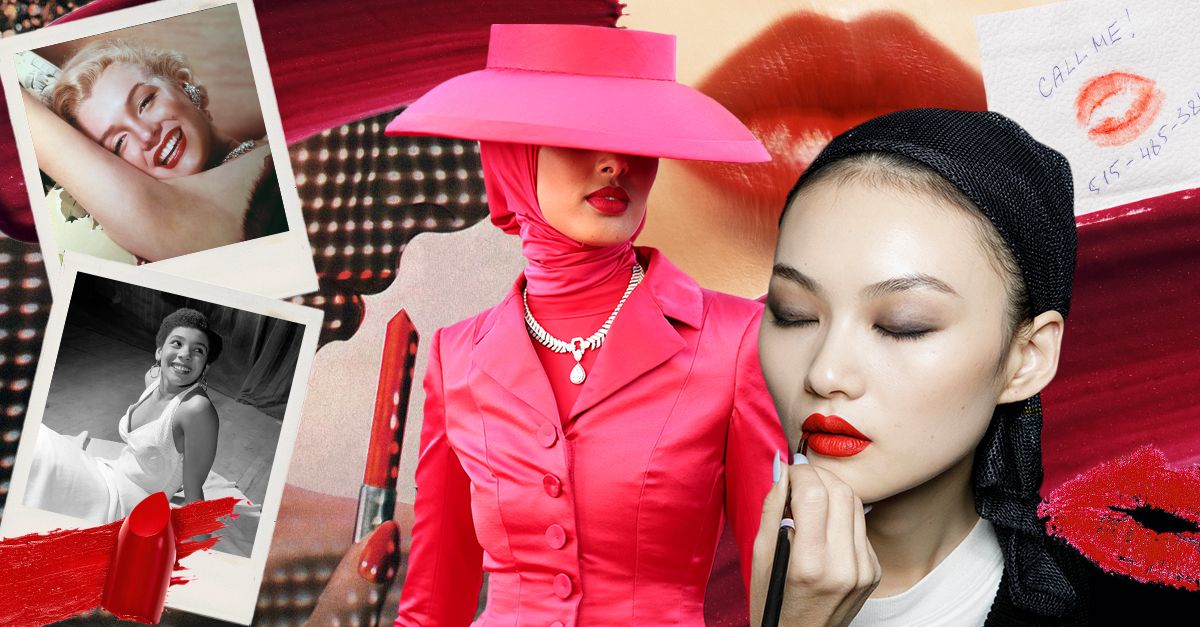To me, red lips have always been a significant marker of adulthood. After years of seeing the gorgeous women on both sides of the family sporting eye-catching red lips for everything from a last-minute trip to the grocery store to a lengthy church service, I was finally given the go-ahead to wear my own with pride. Said empowerment stuck with me as I moved throughout the day, and I was suddenly wondering when I would begin to be called “auntie” by the younger members of my family.
I know I’m not alone in my connection to crimson lipstick. Red lipstick has held a special power over past generations of beauty lovers, so to explore its rich history and how it will shape what we’ll see in the future, I tapped one of the industry’s household names: beauty enthusiast, historian, and Co-Founder of Bésame Cosmetics Gabriela Hernandez. She aims to bridge beauty’s past and present by re-creating 100 years of shades, packaging, and products, so it’s no surprise that the brand’s red lip colors continuously catch my eye. Every red lip color tells a story (especially when it comes to its complex relationship with femininity, womanhood, and the female gaze), and here, she dives into how each narrative ultimately informs future trends.
The Red Lips of Yesterday: Sensuality, Status, and Subdued Femininity
(Image credit: Archive Photos/Getty Images; Silver Screen Collection/Getty Images; Mirrorpix/Getty Images;Donaldson Collection/Michael Ochs Archives/Getty Images; Art by Audrey Hedlund)
Red is a power color and will always possess a pull on those who wear it and see it. Red lipsticks have also had a complex past that can inform us of why red lips have been regarded negatively and positively throughout history. In ancient Egypt, aristocrats favored wearing red ochre mixed with resin and carmine as lipstick to indicate social status and power. Then, for centuries, red lips were connected to courtesans, sex workers, and individuals with libertine lifestyles who entire religious and political movements tried to rid society of. In the 1920s, women wearing vampy red lips were designated as self-sustaining individuals (and part of the scandalous party scene of the Prohibition era).
In the 1940s, red lipstick took on a new role… this time with some nationalism behind it. Montezuma Red, a fiery shade created by Elizabeth Arden, was designed to pair with the khaki and blue uniforms worn by women of the United States Armed Forces. “It became associated with the U.S.’s victory and feelings of patriotism because it was marketed as supporting the troops and boosting morale. It still has that mystique, and it’s one of the reasons the shade is still popular,” Hernandez explains. Her take on the shade Bésame’s 1941 Victory Red, maintains this patriotic twist with a special edition set featuring a silver-plated replica of a World War II victory pin.
“At the turn of the [20th] century, visible makeup wasn’t accepted at all. Cosmetics were worn, but in an extremely covert way with natural-looking touches,” says Hernandez. “After the 1930s, opinions on red lipstick changed, but the fact is that people wore red lips regardless in every era.” It’s safe to say that in the present and future, we can still expect to see red lipstick as having strong ties to icons of the past, like actress Marilyn Monroe and politician Margaret Thatcher to megastars like Taylor Swift.
The Red Lips of Today: Red Lip Theory and the Experience of Womanhood
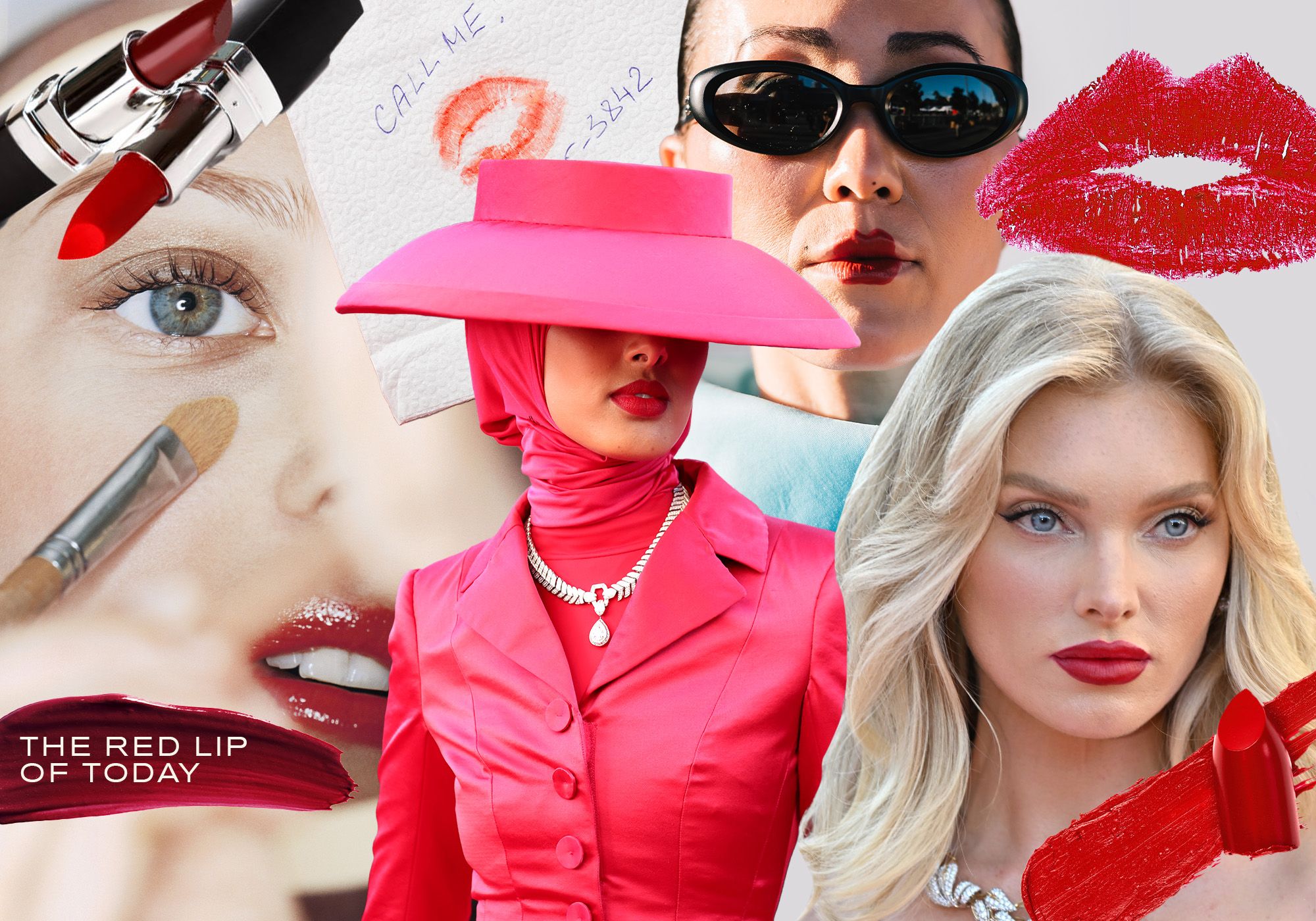
(Image credit: Gisela Schober/Getty Images; Naomi Rahim/Getty Images; Stephane Cardinale-Corbis/Getty Images; art by Audrey Hedlund)
Today, red lipstick is widely accepted as an expression of one’s personality and style and remains largely free from the strong political and status-based ties we’ve seen previously. Recently, you may have seen the term “red lip theory” trending on various social media platforms, referring to the idea of applying red lipstick to instantly boost one’s mood and morale. “‘Red lip theory’ hasn’t changed because it is the least expensive and easiest thing to do when a person needs a pick-me-up,” Hernandez tells us. That, however, doesn’t mean red lips are without historical lore (especially as it relates to women’s availability, fertility, and sensuality).
Even beyond the patriotic symbolism of red paired with white and blue in the mid–20th century, the color has always played a role in how we see ourselves and the world around us. While the implication of a person deciding to wear red lips has shifted throughout time, the simple act is linked to femininity in a way no other cosmetic product has been. “It’s ingrained in how society sees color; adding the color to your lips or cheeks [is] so strongly associated with health, vitality, and youthfulness,” Hernandez continues. “Wearing red will make people notice you. It’s also worn on special occasions to really bring out the ultra-feminine side of people.” This explains why red lips have had ups and downs in popularity when certain societal connotations are at an all-time high.
The Red Lips of Tomorrow: Red Lipstick (Remixed)
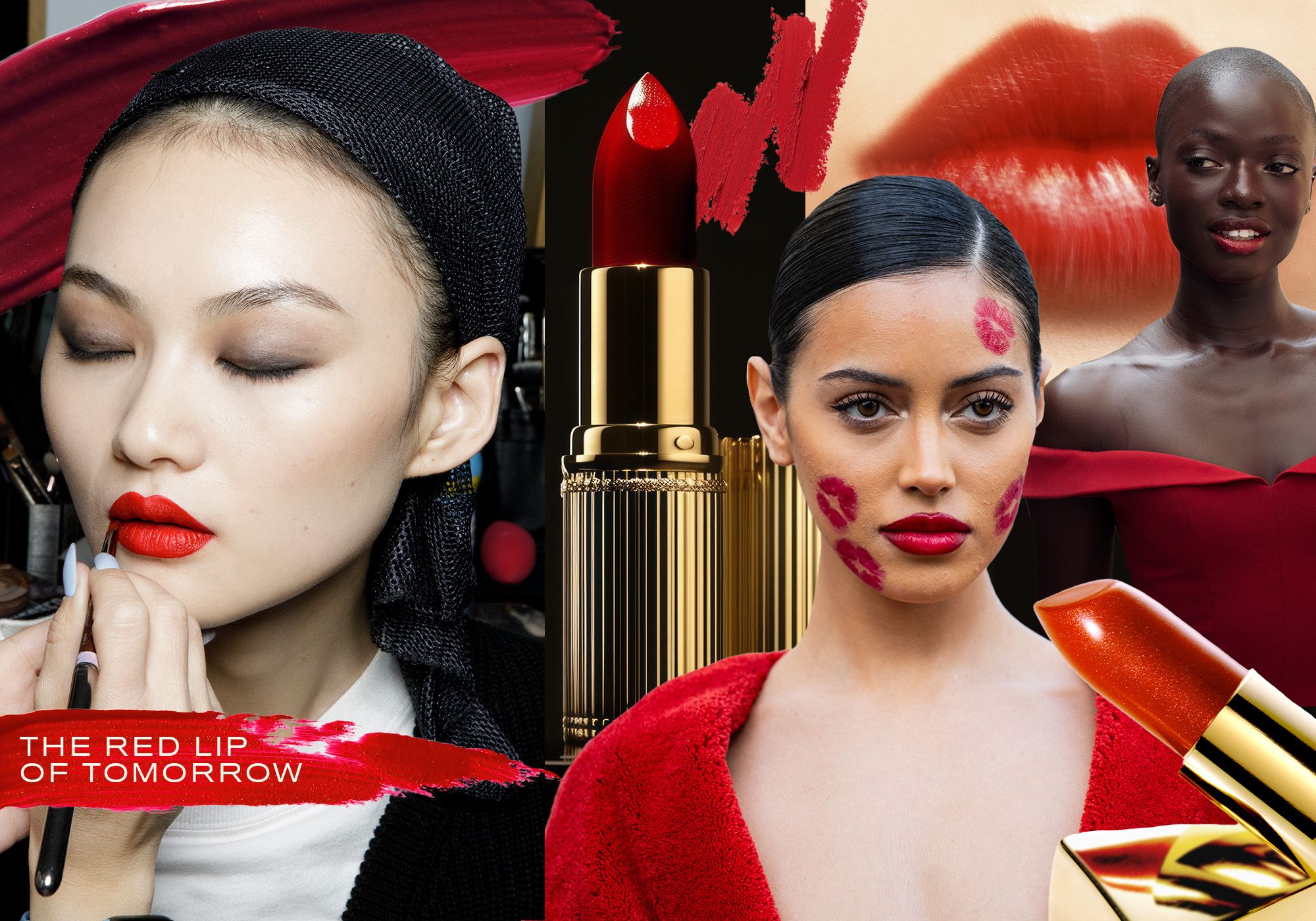
(Image credit: Rosdiana Ciaravolo/Getty Images; Christian Vierig/Getty Images; Raimonda Kulikauskiene/Getty Images; art by Audrey Hedlund)
To predict what we’ll see next from the red lipsticks of tomorrow, makeup experts like Hernandez are considering which commonalities in societal opinion have prevailed. She predicts the future reception of red lipstick will remain unchanged in the years to come, pushing the limit of what we expect red lips to look like without fully breaking from what we’ve seen previously. Paris Fashion Week Spring/Summer 2024, for example, was ripe with red lip inspiration. While the glossy, vinyl red lips we’ve seen for the past couple of seasons have certainly kept their relevance, vibrant orange- and blue-leaning shades in semimatte finishes (pictured above on influencer Cindy Kimberly and model He Cong) took the prize.
This fall, we’ll also keep an eye out for diffused blood and cherry reds, berry tones, texture plays, and sheer colors with glosses and balms as opposed to the stains and tinted lip oils that have gained popularity over the past few years, Hernandez adds. We’ll also continue to see cutting-edge formulas that provide various finishes, nurturing ingredients, and lasting longevity to their wearer. Translation: No more red lipstick that dries down like car paint.
Finding the Perfect Shade
If you’re feeling inspired to find your perfect shade of red lipstick, take a note from Hernandez and use a more holistic approach while shopping for your best match. “To find the perfect red shade, look at your whole face and pay attention to what tone you notice the most and decide if it looks cool or warm,” she explains. Individuals with cool tones should consider lipsticks with hints of blue and purple, mauve hues, and shades of true red. Those with warm undertones may find success with warm shades of pink and brown as well as corals and brick reds.
Although your undertones won’t paint the whole picture, your hair and eye color can also play a role here. Fire-engine red shades typically complement red strands, while deep berry shades can work well with darker hair. For a person with fair skin and dark hair, Hernandez recommends opting for red lipstick that has blue undertones to balance out the pink undertones of the skin yet amplify the richness of the darker strands.
Ultimately, though, you can choose whether you want to complement or contrast your natural features. “You’ll have more of an idea of what to do depending on what you want. It’s a game of proportions,” says Hernandez. Say one person wants their lip color to blend with their natural skin tone and another wants one that stands out; the first may shop according to the natural tones of their skin, hair, and eyes, while the other may want to play with more “unnatural” colors to create dimension.
You can always follow the makeup guidelines, but a red lip ultimately has no rules. Would you expect anything less from such a powerful symbol? Below, shop the best editor and expert-approved red lipsticks with thousands of glowing reviews.
Discover The Most Iconic Red Lipsticks
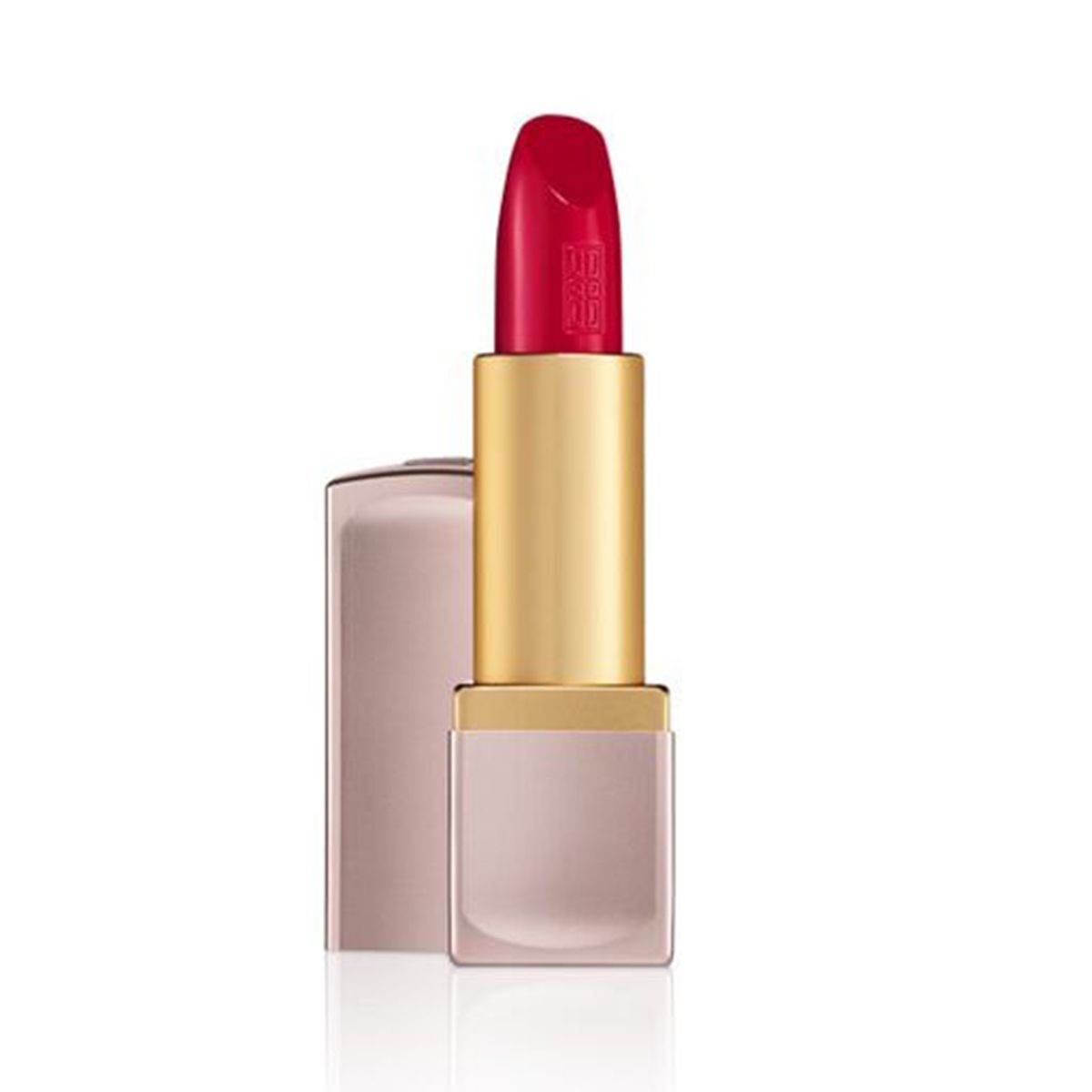
Elizabeth Arden
Lip Color Lipstick in Red Door
Businesswoman Elizabeth Arden handed out this electric red shade to suffragettes as they marched for the vote in 1912 on 5th Avenue in New York City. An avid supporter of women’s rights, she also shipped tubes of it to women serving in the military during World War II.
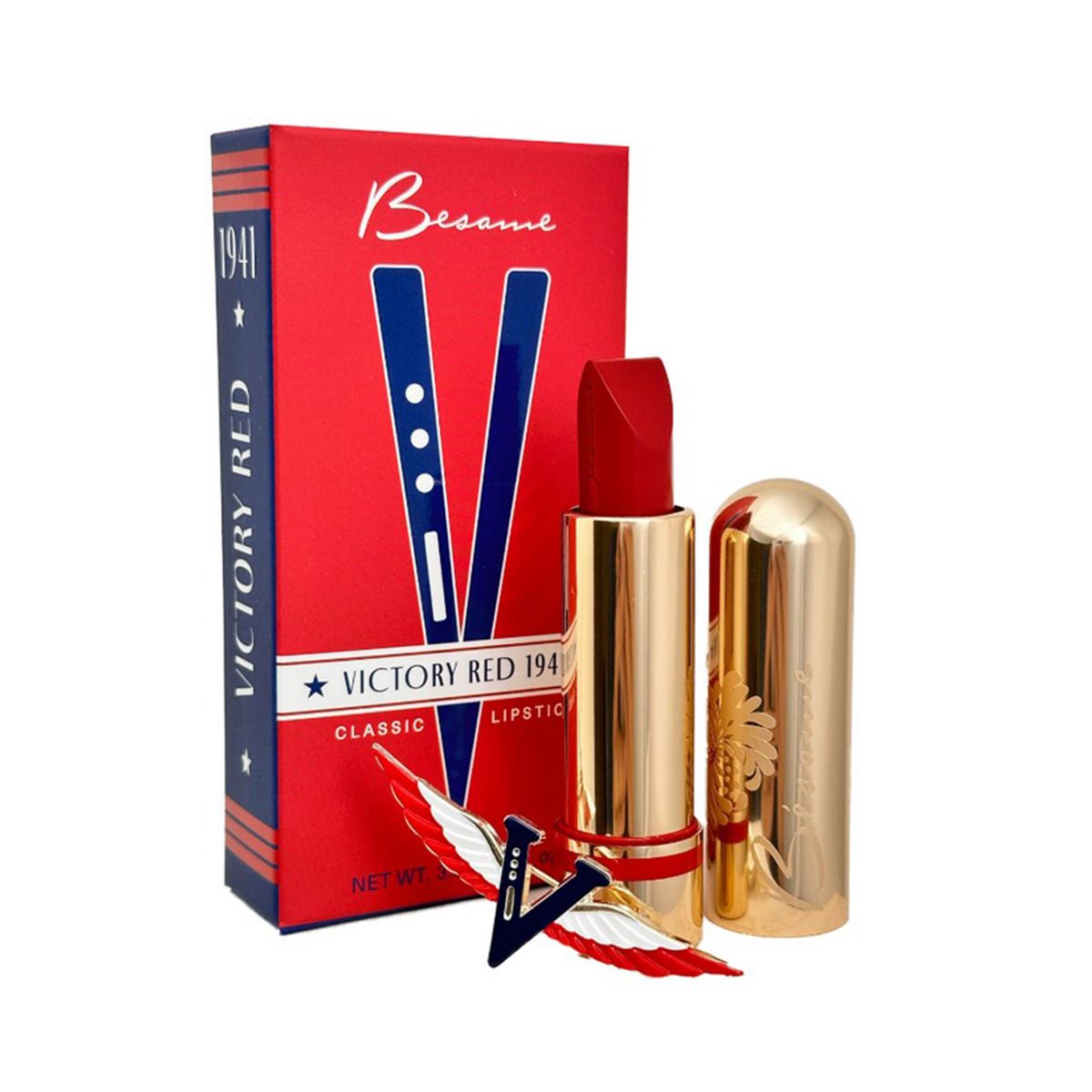
Bésame Cosmetics
Victory Red 1941 Lipstick
A modern-day interpretation of Elizabeth Arden’s Montezuma Red shade is Bésame Cosmetics’ relaunched, best-selling Victory Red 1941 Lipstick, which is part of a limited-edition set with new packaging and a 1940s replica victory pin in celebration of the brand’s 20th anniversary.
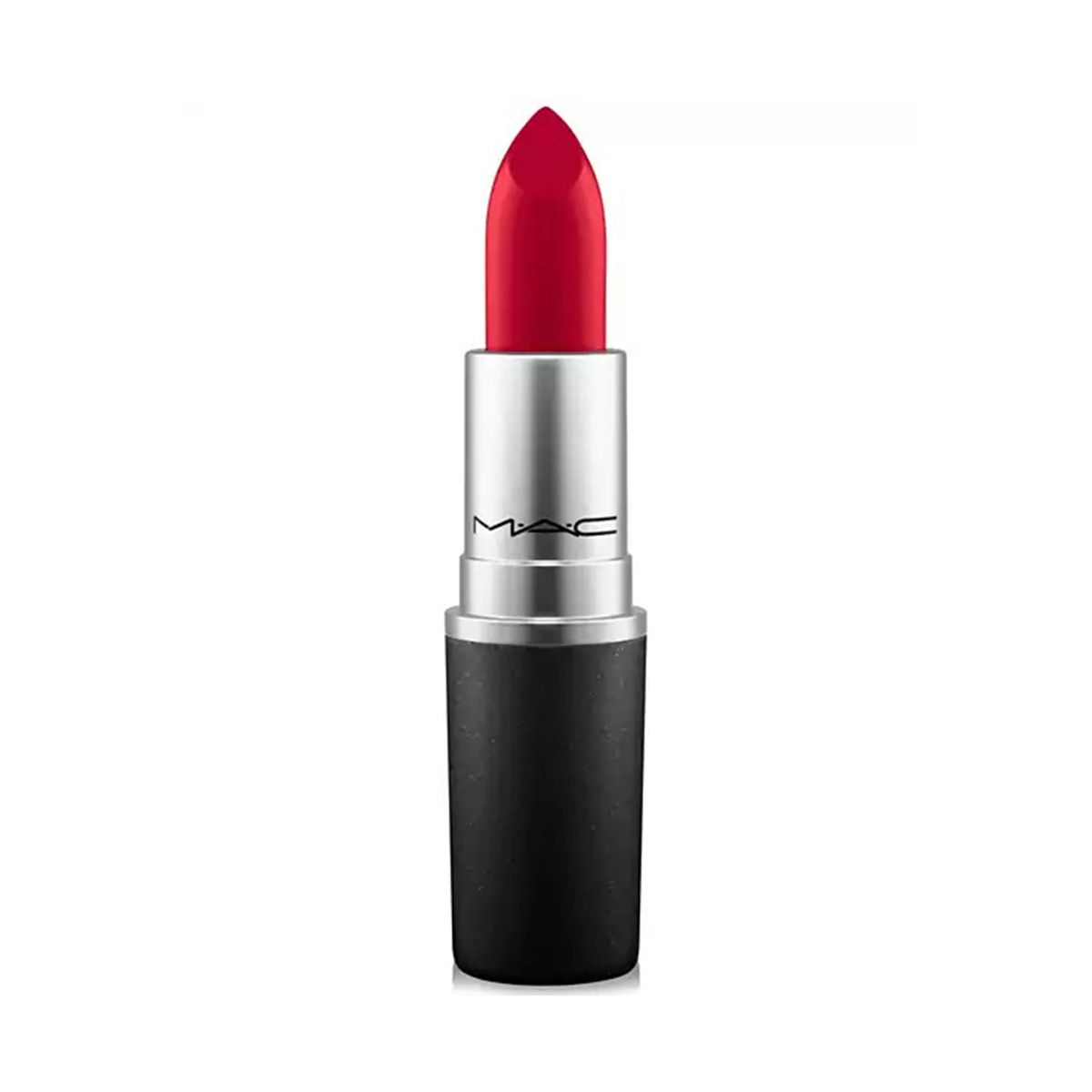
MAC Cosmetics
MAC Retro Matte Lipstick in Ruby Woo
Ruby Woo was released in 1998 as part of the five-piece Retro Matte lipstick collection and is a velvety matte, blue-red shade that suits every skin tone. It has been spotted on celebrities such as Rihanna, Angelina Jolie, Taylor Swift, and Rita Ora on and off the red carpet.
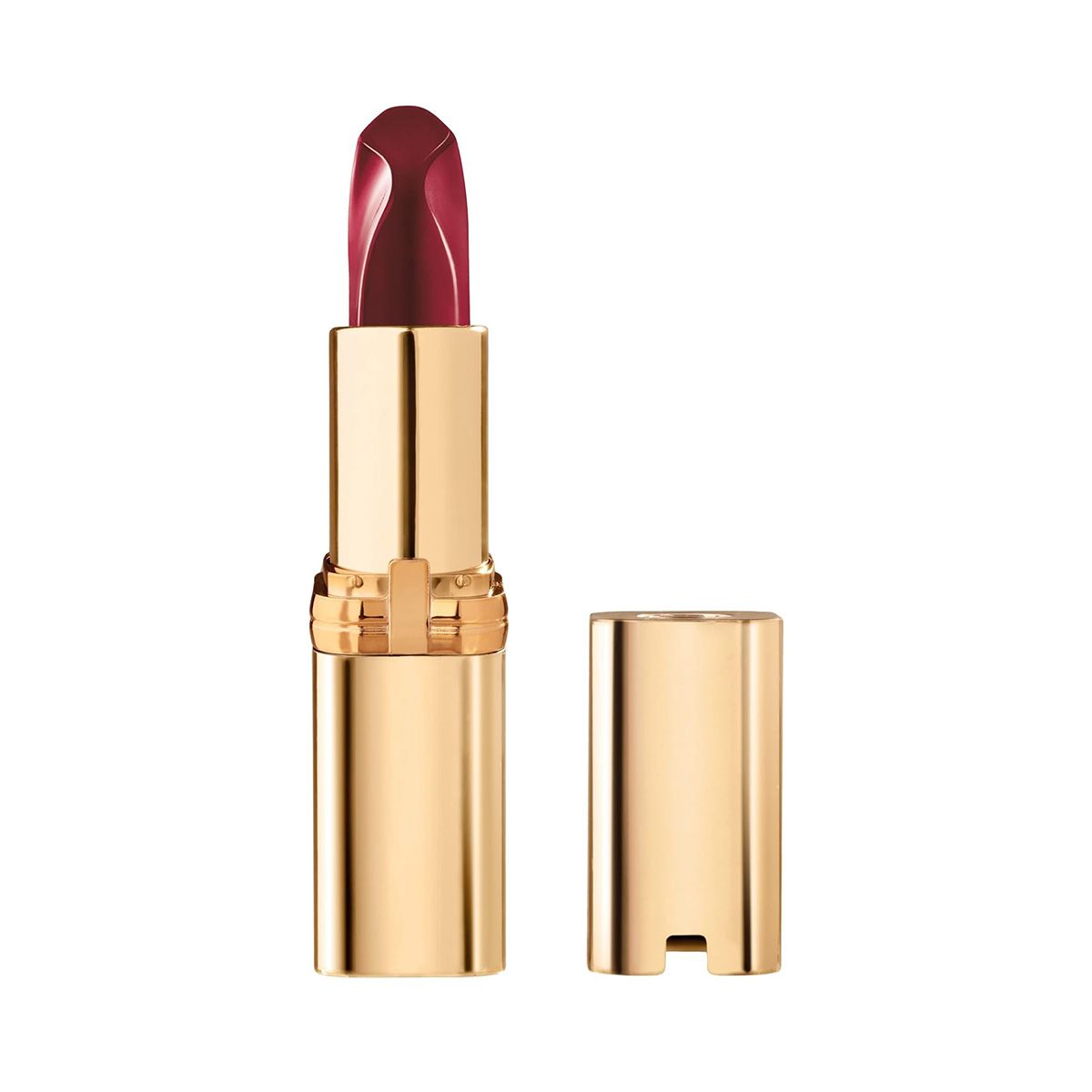
L’Oréal Paris
Reds Of Worth Satin Lipstick in Hopeful Red
According to Hernandez, we’ll be seeing many more berry-red lip looks on the rise this fall. To get a jump on the trend, try L’Oréal’s Reds of Worth Satin Lipstick in Hopeful Red. It uses rich pigments for intense color and a beautiful satin finish that looks good on all skin tones,
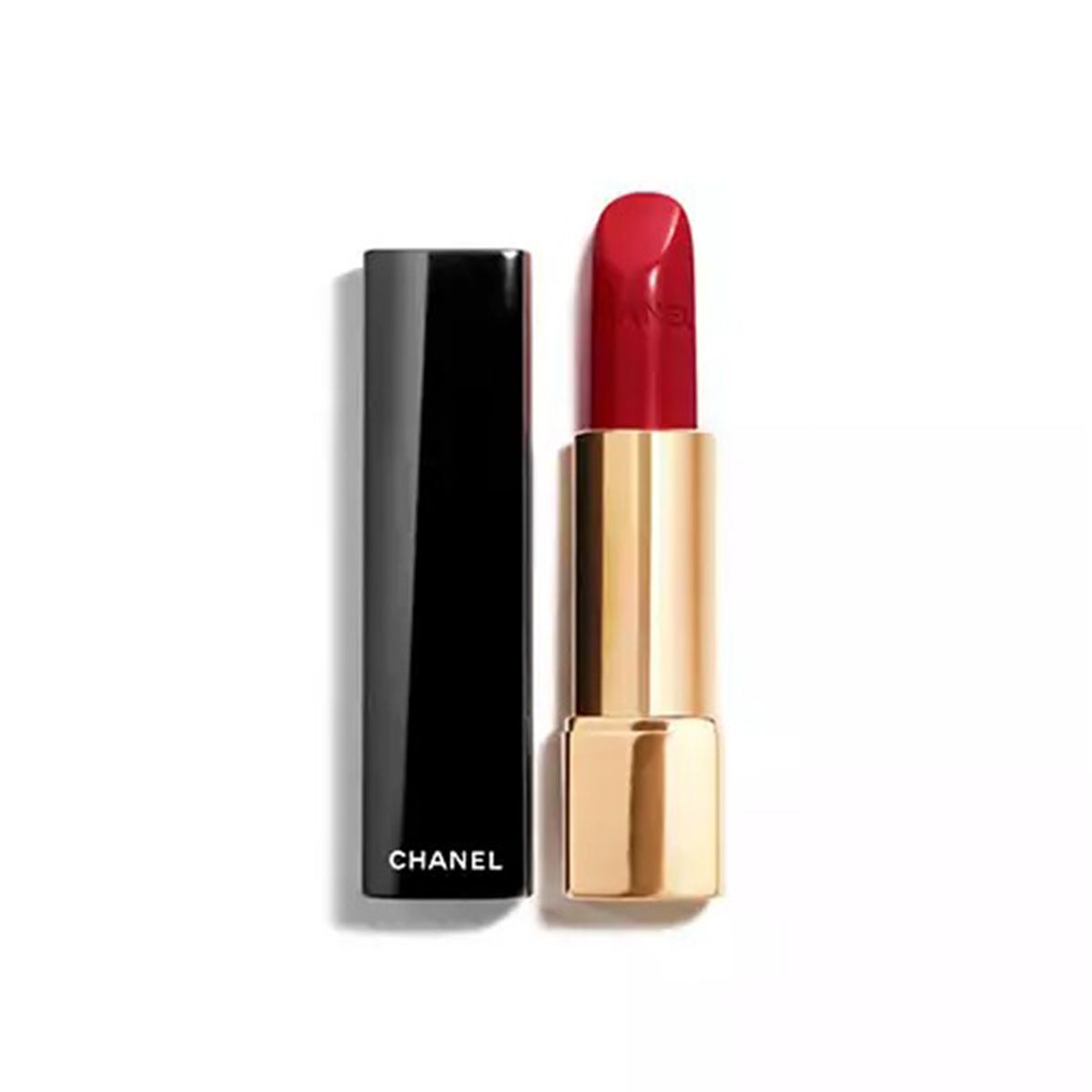
Chanel
Rouge Allure Luminous Intense Lip Colour in Pirate
This classic scarlet shade by Chanel is a deep red with cool pink undertones and a luminous finish. It’s part of its Rouge Allure Luminous Intense Lip Colour line, which launched in 2012 in a lineup of 15 other highly pigmented shades.
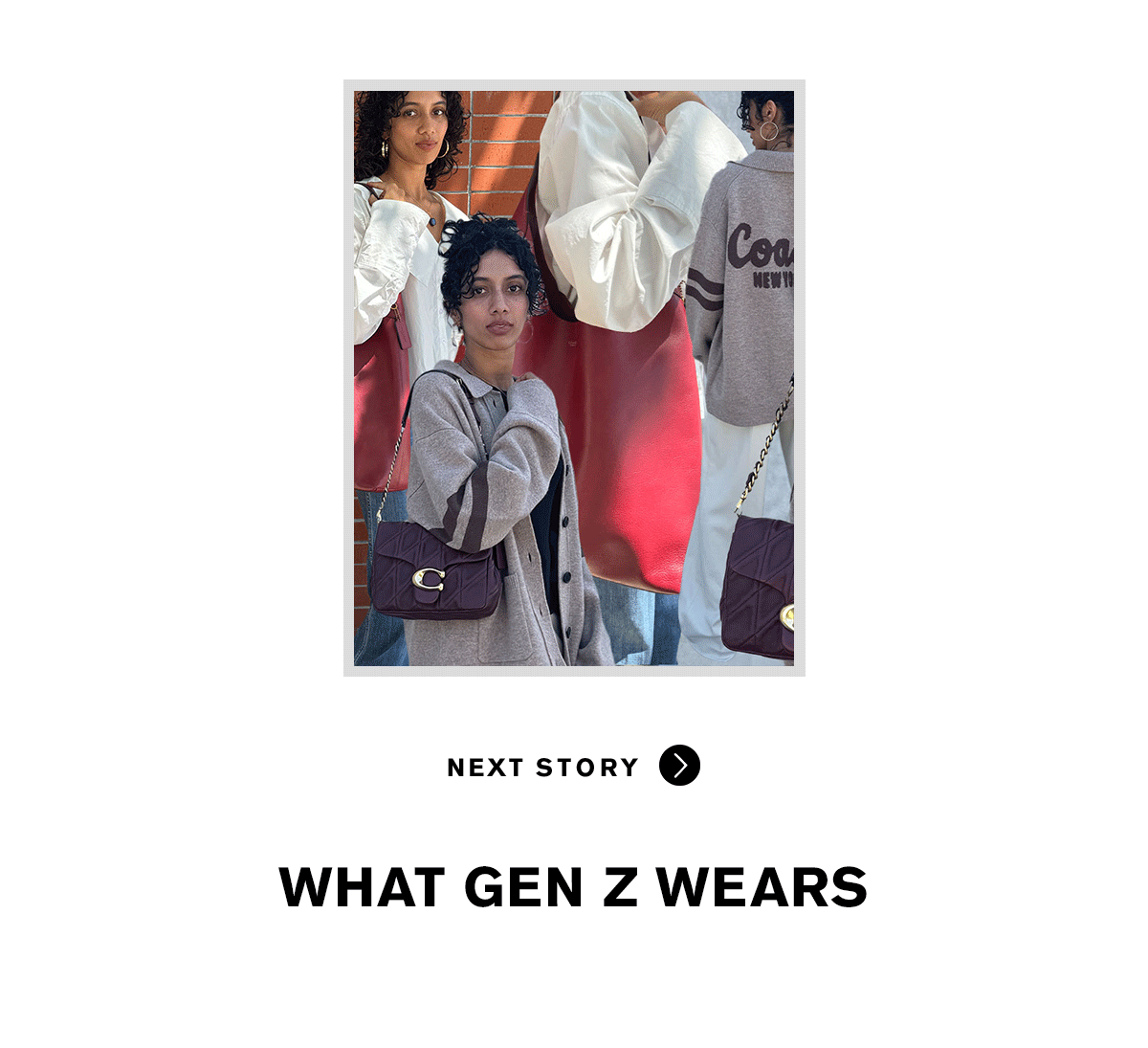
(Image credit: Who What Wear)
